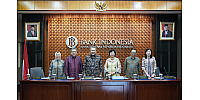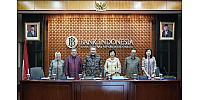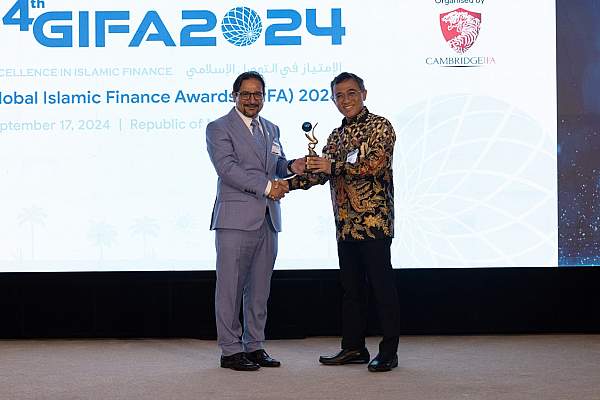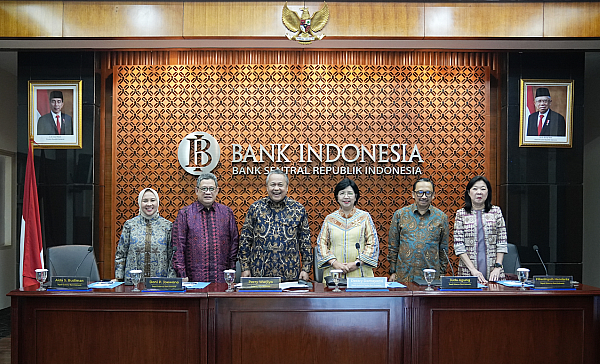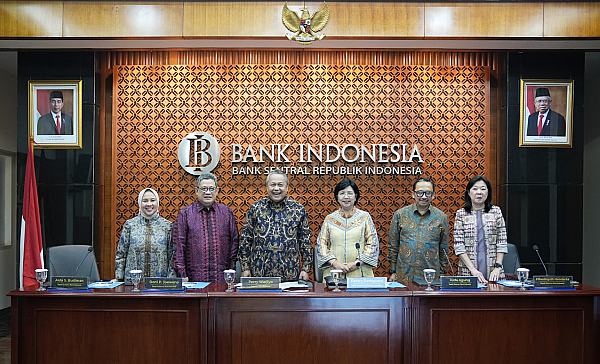Sharia Financing Continues to Increase, But the Market Share is Still Small
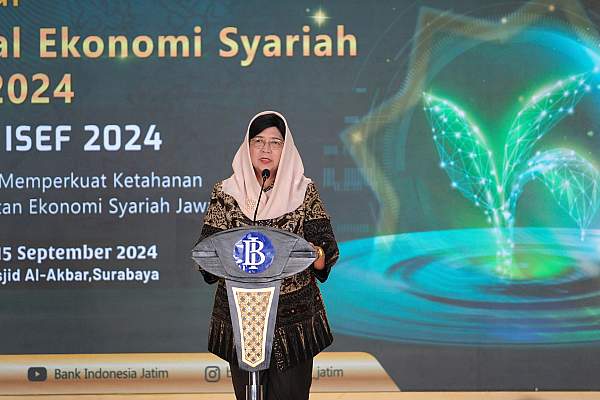
As of July 2024, Islamic banking financing has reached IDR 597.89 trillion, reflecting an annual growth of 11.92 percent. In the same period last year, the financing amount was recorded at IDR 569.37 trillion. In comparison, conventional credit disbursement in July 2024 experienced a growth of only 11.6 percent.
On a global scale, Indonesia's Islamic economy (eksyar) ranks third in 2024 according to the SGIE Report, positioned below Malaysia and Saudi Arabia, marking an improvement of one rank from the previous year.
This information was revealed during the launch of the East Java Islamic Economic Festival (FESyar) in Surabaya on Friday, September 13, 2024. The event, organized by Bank Indonesia (BI), was themed “Synergy to Strengthen Resilience and Revitalize the Islamic Economy of Java” and took place from September 13 to 15, 2024.
The 2024 FESyar Jawa, featuring a variety of activities, is part of the lead-up to the 11th Indonesia Sharia Economic Festival (ISEF), scheduled to be held in Jakarta from October 30 to November 3, 2024.
In her opening remarks at FESyar Jawa 2024, BI Senior Deputy Governor Destry Damayanti emphasized the importance of accelerating eksyar through close collaboration with the National Committee for Islamic Economy and Finance (KNEKS) and various stakeholders.
BI serves as an "AIR" (Accelerator, Initiator, and Regulator), coordinating with stakeholders to promote the acceleration of eksyar programs, initiating innovative development programs, and issuing regulations.
The acceleration of eksyar must be supported by expanding access to financing, enhancing financial literacy, and strengthening the multiplier effect of eksyar. "In this regard, digitalization is key," stated Destry, as quoted in BI's official release on Friday, September 13, 2024.
Bank Indonesia, in collaboration with relevant partners, is working to accelerate the development of the Islamic economy and finance in Java through three digital innovations. These initiatives focus on expanding financial literacy, developing microfinance, and creating socio-economic instruments for community empowerment.
The first initiative involves the digitalization of inclusive and Islamic financial literacy by enhancing the collaboration between the BI Representative Office and the Provincial Communication and Information Office (Diskominfo).
The second initiative aims to digitalize the end-to-end halal ecosystem through the establishment of halal centers, the development of a database for halal SMEs across Java, and facilitating the onboarding of financing for SMEs in partnership with Baitul Maal KNEKS.
The third initiative focuses on the digitalization and optimization of Zakat, Infaq, Shodaqah, and Wakaf (Ziswaf) through collaboration with the Satu Waqaf Indonesia (SWI) platform, specifically for Java. These three innovative programs were launched during the FESyar Java 2024 event.
Despite the continuous growth of Islamic financing surpassing that of conventional banking credit, its national market share of total banking credit was only 7.38 percent as of March 2024. The Financial Services Authority (OJK) projects that by 2028, the market share of Islamic banking could reach 18 percent.


